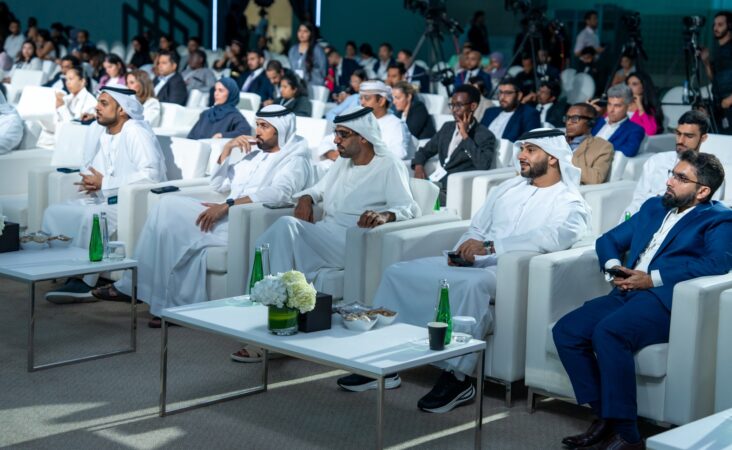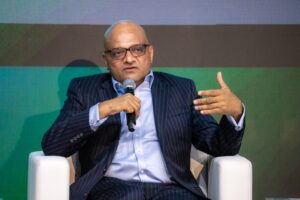‘We’re Here To Contribute To The UAE’s Economy’, Says Alibaba’s MEA Lead At Sharjah Investment Forum 2024

Technology is pivotal to the transformation of international trade and fostering smarter economies and businesses, said Youssef Mohammed, MEA Managing Partner at Alibaba.com, during the 7th annual Sharjah Investment Forum (SIF) on Thursday.
Speaking on the panel titled ‘Supply Chain Synergy: Driving Innovation in Logistics,’ Mohammed emphasised the crucial role of technology in Alibaba Group’s success and how the global e-commerce giant can assist UAE exporters in reaching markets worldwide. “The UAE is very ambitious in shoring up its exports. We’re here to onboard as many manufacturers and traders on Alibaba.com to boost the export economy,” he remarked, highlighting the platform’s significance in enhancing cross-border trade.
Discussing the advantages offered by Alibaba, Mohammed pointed to several revolutionary tech features that benefit exporters. “Our Trade Assurance mechanism ensures secure transactions for businesses engaged in international trade. If a business applies for Trade Assurance on Alibaba.com, we guarantee the transaction. It’s like a digital letter of credit.” He further underscored the importance of technology in logistics, noting that AI is now intricately woven into trade insurance and logistics networks.
This digital transformation aligns with Alibaba’s broader strategy, including the launch of Cainiao Logistics, a significant player in the UAE market. “With Cainiao Logistics, our goal is 24-hour delivery within China, 72 hours within Asia, and 5-10 days globally,” Mohammed said. This AI- and big data-driven logistics solution enables businesses to optimise their supply chain operations efficiently.
AI’s role in driving efficiency and innovation
Bobbi Stattelman, CEO of Falcons AI, encouraged industry leaders to look beyond immediate benefits such as route optimisation and explore the “negative spaces,” where AI can unveil unexpected efficiencies. To substantiate, she recounted a project that employed computer vision technology to resolve code identification issues for a shipping company. “In supply chain, AI has much greater potential to make businesses more profitable,” she observed, urging companies to remain open to collaborations with tech firms to create tailored solutions.
Sustainability and automation: A balancing act
Rajesh Garg, Group CFO and Sustainability Lead at Landmark, discussed the integration of sustainability and automation in supply chain management. “Removing dollars is removing carbon,” Garg noted, explaining that energy-saving measures across Landmark’s warehouses have not only lowered costs but also reduced emissions.
The industry veteran also highlighted how Landmark is harnessing automated systems and technologies within their supply chain. “In our largest warehouse, we have automated almost every aspect, with over 50 kilometres of conveyors and automated retrieval systems. These innovations have enabled us to handle massive volumes with minimal workforce,” he said.
The panellists echoed that technology, sustainability, and collaboration are the foundational pillars for the future of logistics. By embracing these elements, businesses can enhance operational efficiencies while ensuring their competitiveness in a changing global economy.
The seventh edition of the Sharjah Investment Forum took place on September 18 and 19 at the Al Jawaher Reception and Convention Centre in Sharjah. Organised by the Sharjah FDI Office (Invest in Sharjah), this year’s theme was “A Futuristic Vision for Smart Economies.”



